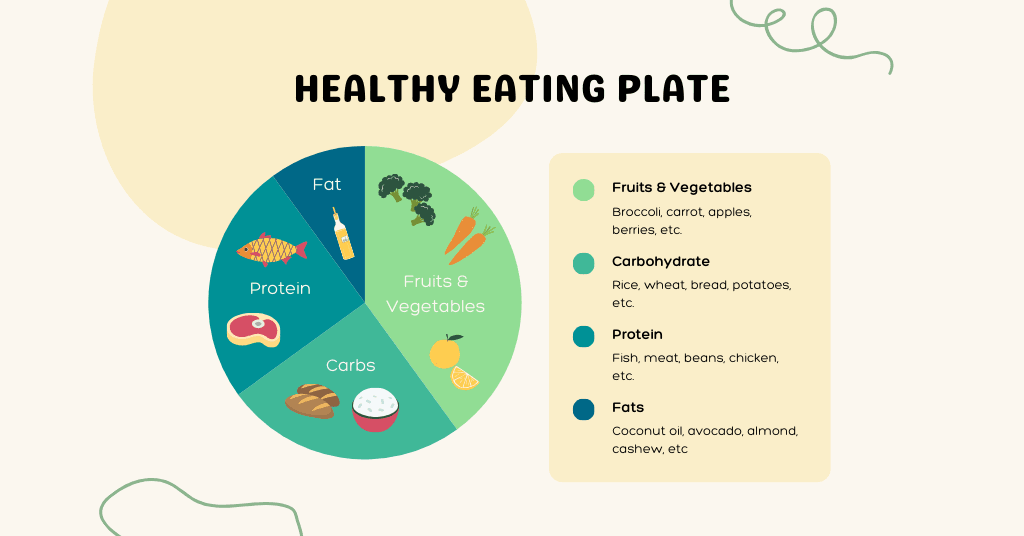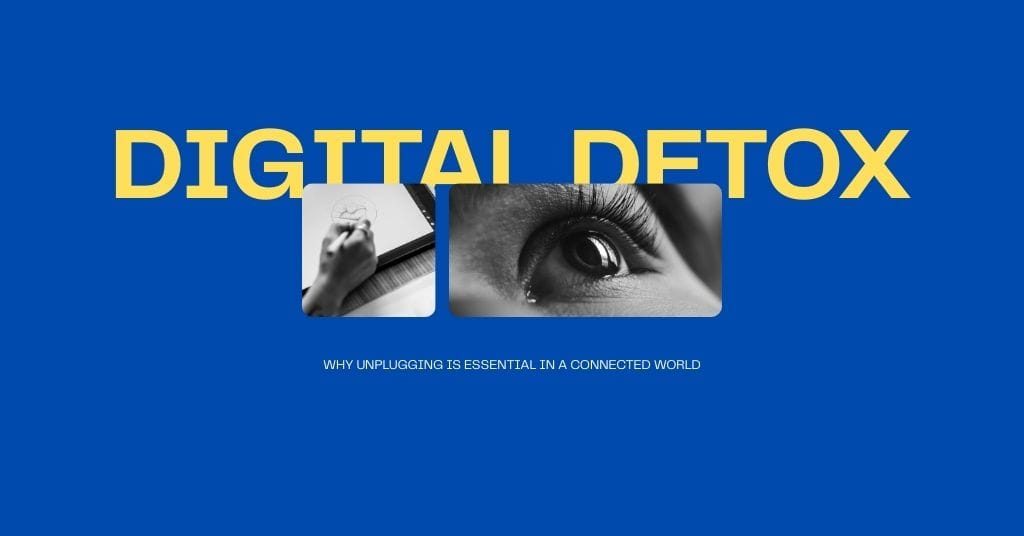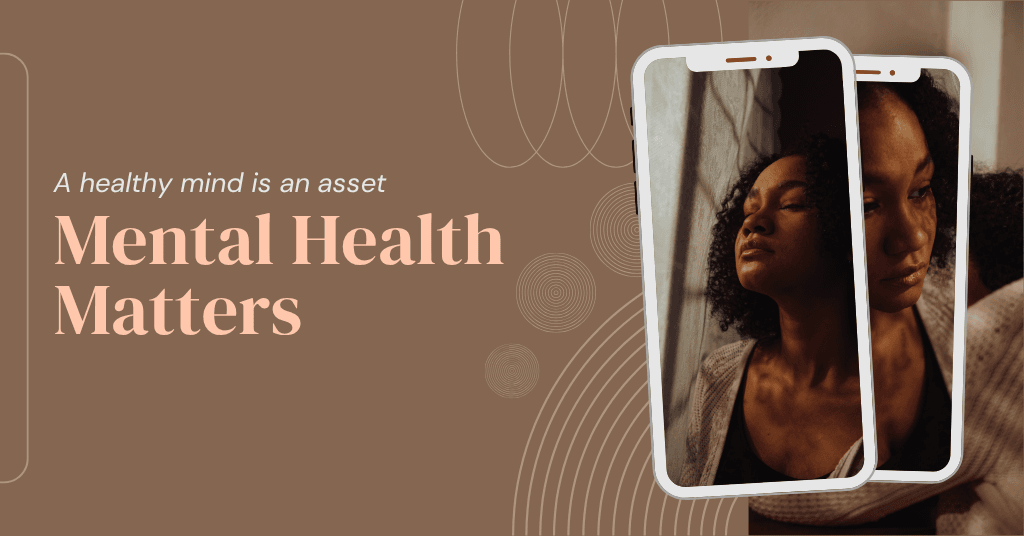Live a Healthy Life: 7 Habits That Actually Work
We have heard since our childhood that health is wealth. If we feel healthy and happy, we can achieve everything. Without good health, we cannot enjoy our wealth; however, our hectic schedules and busy lifestyles make it difficult to maintain our health. If we want to maintain our health, we need to change our small habits.
If we change our small habit, we can see a big difference after some time. Different types of diets and quick-fix solutions bombard us, often failing to deliver lasting well-being. But the truth is that start a healthy lifestyle or living a healthy life isn’t about restrictive measures or unattainable ideals. It’s about embracing a holistic approach that nourishes your mind, body, and soul. In this article I will share some golden rules and simple daily habits for starting a healthy lifestyle. We can achieve sustainable health by changing our daily routine.
Living a healthy lifestyle is a journey, not a destination. With the increasing awareness of the importance of health and well-being, more and more people want to live a healthy lifestyle naturally. In this article, we will explore the various aspects of a healthy lifestyle and provide you with practical tips and advice on why it is essential for maintaining physical and mental well-being. By adopting healthy habits, you can reduce the risk of chronic diseases, improve your mood, and increase your energy levels. A healthy lifestyle can also strengthen your relationships, productivity, and overall quality of life.

1. A Balanced Diet to live a healthy life
Nutrition plays a vital role in maintaining a healthy lifestyle. A balanced diet provides your body with the necessary nutrients, vitamins, and minerals to function properly. A balanced diet leads to good health. It refers to taking the proper amounts of carbohydrates, proteins, fats, vitamins, and minerals. Eat simple, homemade food. If you are eating a regular day-to-day diet of different kinds of dals and rice, whole-grain chapati, fruits, vegetables, milk, and paneer curd, then there is no need for diet supplements.
If you take a proper, simple, homemade diet, your body will get complete nutrition. You can add to your diet all seasonal fruits and vegetables, as well as other healthy foods, according to the seasons. If you have healthy eating habits according to the season, your body can protect your overall health from seasonal diseases. Suppose in the winter season you plan your diet with easily available, highly nutritious seasonal foods. A healthy diet is essential for optimal health and nutrition.
- Eat fruits and vegetables every day. They offer primary vitamins and antioxidants. High-fibre superfood
- Whole grains: Consume roti, brown rice, oats, and other whole grains in place of refined grains.
- Protein Foods Store dals, paneer, curd, milk, and other milk products to provide protein.
- Healthy Fats: Keep ghee, olive oil, or mustard oil in limited quantities. Do not have fried foods and junk food.


2. Stay Hydrated to live a healthy life
Staying hydrated is essential for maintaining a healthy life, and water plays a crucial role in various bodily functions, making up about 60% of our body weight. Drinking enough water helps regulate body temperature, transport nutrients, and remove waste products. Adequate hydration boosts energy levels and mental performance, supports healthy skin, hair, and nails, aids in digestion, and prevents constipation.
In contrast, inadequate hydration can lead to fatigue, headaches, and dizziness, as well as dry skin, hair loss, and brittle nails. Furthermore, insufficient fluid intake can cause constipation, digestive problems, and kidney stones and impair cognitive function, reducing productivity.
Therefore, it is vital to drink enough water and other liquids, aiming for at least 8–10 glasses per day, to maintain optimal health and well-being. Drinking enough liquids is essential for our bodies to function properly. benefits of drinking enough water. Without it, we may experience a range of negative effects. Proper hydration is key to a healthy life. Dehydration leads to fatigue, headaches, and poor concentration
- Take at least 8–10 glasses of water every day.
- You may drink fresh juices, coconut water, buttermilk, green tea, or herbal teas as well.
- Avoid sweet drinks and sodas because they are not good for your health
- Avoid cold water and drink slowly.

3. Exercise regularly to live a healthy life
Regular exercise is a cornerstone of a healthy lifestyle, offering numerous benefits that can transform your overall well-being. Daily physical activity can boost your mood, increase energy levels, and enhance cognitive function. Benefits of daily exercise Exercise has been shown to reduce the risk of chronic diseases, such as heart disease, diabetes, and some cancers. Moreover, regular physical activity can improve sleep quality, aid in weight management, and increase bone density. With so many benefits, it’s no wonder that incorporating daily exercise into your routine can have a significant impact on your overall health and well-being.
Incorporating daily exercise into your routine can be simple and enjoyable. You don’t need to be a fitness enthusiast or spend hours at the gym to reap the benefits. Even small amounts of physical activity, such as taking a short walk or doing a few jumping jacks during commercial breaks, can make a difference.
The key is to find activities that you enjoy and that fit into your lifestyle. Whether it’s yoga, swimming, or dancing, the most important thing is to get moving and make physical activity a habit. By prioritising daily exercise and activities, you can take a proactive approach to maintaining a healthy lifestyle and reducing your risk of chronic diseases. For more tips on getting started exercising.
Exercise plays a vital role in maintaining a healthy lifestyle. It makes you feel good and more energetic and helps you maintain your weight. You can do any activity that you like. We should exercise daily since most jobs require sitting all day. They do not have enough time to exercise.
- Yoga: Yoga practice promotes flexibility, strength, and a peaceful mind.
- Home Workouts: Basic movements like jumping jacks, squats, or dancing can be performed at home.
- Morning Walks: Start the day with a quick walk around the park.
- Fitness centre: If you have time, you can visit a fitness centre.
- Try to get at least 30 minutes of exercise each day for a healthy lif

4. Get Enough Sleep to live a healthy life
Sleeping well is required so that your body can heal and rest. Enough sleep offers numerous advantages. According to the Sleep Foundation, 7-9 hours is optimal. Good sleep helps you be more alert, attentive, and able to remember things more easily. Your brain processes and stores information while you are sleeping so that you can learn and remember. Sleep helps to regulate the immune system, producing cytokines that fight off infections and regulate pain perception, reducing chronic pain. Getting enough sleep daily is essential to start a healthy lifestyle.
Sleep plays a crucial role in maintaining a healthy life, offering numerous benefits for our physical and mental well-being. The advantages of sleep include improved cognitive function, better mood regulation, and enhanced memory consolidation. During sleep, our bodies repair and rejuvenate tissues, build bone and muscle, and strengthen our immune systems. Adequate sleep also helps regulate the hormones that control appetite. Metabolism can significantly impact our weight and overall health.
According to the National Sleep Foundation, getting the right amount of sleep can also help reduce the risk of chronic diseases, such as heart disease and diabetes. Furthermore, sleep has been shown to improve athletic performance and reduce inflammation.
But if sleep is not properly managed, it can also have negative effects. For instance, sleeping too much or too little can harm our health, such as causing impaired cognitive function, increased risk of chronic diseases, and a weakened immune system. The Centres for Disease Control and Prevention (CDC) reports that sleep deprivation can also increase the risk of accidents, injuries, and errors, making it a significant public health concern.
Additionally, sleep disorders such as insomnia, sleep apnoea, and restless leg syndrome can significantly impact our quality of life and overall health. By becoming aware of these potential disadvantages and taking steps to manage our sleeping habits, we can maximise sleep benefits and maintain a healthy lifestyle. To enhance your sleep:
- Maintain a consistent sleeping schedule.
- Avoid heavy meals or caffeine before bedtime.
- Keep your bedroom peaceful and dark.
- Go to bed and wake up at the same time every day.

5. Avoid Stress and Bad Habits to live a healthy life
Stress is inevitable, but unnecessary stress could be dangerous for your health. Meditation and deep breathing are essential for maintaining mental health and a healthy lifestyle, both of which contribute significantly to overall well-being, with one key aspect being the avoidance of stress. Chronic stress can have severe consequences for both physical and mental health, including anxiety, depression, and cardiovascular disease. To manage stress, it’s essential to prioritise self-care activities, such as meditation, yoga, or spending time outdoors. According to the National Institute of Mental Health, practicing stress-reducing techniques like deep breathing, progressive muscle relaxation, or mindfulness can also help alleviate stress and anxiety. what is stress By incorporating these activities into daily life, individuals can better cope with stress and promote mental well-being.
In addition to self-care, building strong social connections and seeking support from loved ones or mental health professionals can also play a crucial role in maintaining mental health. The World Health Organisation highlights the importance of social Support networks are essential for effectively managing stress and promoting mental health. Furthermore, engaging in activities that bring joy and fulfilment can help reduce stress and improve overall mental well-being. By prioritising mental health and taking By taking proactive measures to manage stress, individuals can cultivate a healthier and more resilient lifestyle.
There are ways to alleviate stress. You must adopt beneficial habits in your life for a healthy lifestyle, like reading, exercising, and relaxing with your family members or friends. Stress can raise blood pressure, leading to hypertension. Chronic stress can increase the risk of heart disease, heart attacks, and strokes. Avoid unhealthy habits like smoking, excessive drinking, and overeating. They could create serious health issues in the long run.
- Take short breaks when studying or working.
- Do what you enjoy or like.
- Spend quality time with your family and friends.

6. Personal hygiene and regular health check-ups
Prevention is always preferable to cure, naturally. Regularly visit your doctor for medical check-ups. Early detection of any illness can make it easier and more manageable to treat. Regular medical check-ups can monitor chronic illnesses and change treatment regimes when necessary. regular health checkup This can assist people in controlling their conditions more effectively, leading to healthier lives. Health check-ups can provide reassurance and peace of mind about your health. Enhanced health literacy. Don’t wait until you’re sick to see your doctor. Regular check-ups can help monitor your overall health and identify any risk factors. Follow your doctor’s recommendations for age-appropriate screenings, such as blood pressure checks, cholesterol tests, and cancer screenings. Vaccinations are an effective way to protect yourself and others from infectious diseases. Wash your hands frequently, especially before eating and after being in public places, to prevent the spread of germs.
- Maintain personal hygiene by showering daily, brushing teeth twice a day, and washing hands frequently. It helps prevent the spread of illnesses and infections.
- Regular health check-ups can empower you with knowledge about your health and wellness.
- Develop the best hygiene habits by establishing a daily routine that includes. It promotes overall health and well-being.
- Make a list of questions and concerns.

7. Remain Positive and Happy
The most important part of leading a healthy life is maintaining Mental health is as important as physical health. Surround yourself with positive people, be grateful, and attempt to stay happy even in difficult times. Being in good mental health makes you feel better overall. Positive thinking can strengthen our immune system, reducing the risk of illnesses. Happiness and positivity can help reduce chronic pain and inflammation. Positiving thinking A positive mindset can improve focus, concentration, and memory. Positive thinking can help us bounce back from adversity, trauma, or difficult situations. Staying positive and healthy can have numerous benefits for overall well-being. One of the main advantages is that a positive attitude can help individuals cope with stress and adversity more effectively. According to the Mayo Clinic, positive thinking can also lead to better physical health, including lower blood pressure, reduced risk of heart disease, and a healthier weight. Additionally, a healthy life can boost energy levels, improve mood, and enhance overall quality of life. By prioritising positivity and health, individuals can cultivate resilience and better navigate life’s challenges.
However, there are also potential disadvantages to consider. For instance, an overly optimistic outlook can sometimes lead to unrealistic expectations or denial of real problems. According to Psychology Today, this can result in poor decision-making or avoidance of necessary actions. Furthermore, an excessive focus on health and wellness can sometimes lead to unhealthy obsessions or anxiety. By being aware of these potential pitfalls and striving for balance, individuals can reap the benefits of positivity and health while minimising the risks. By finding a healthy balance, individuals can promote overall well-being and live a fulfilling and healthy life.
- Enhances relationships and social connections.
- Practice gratitude and focus on the good things in life.
- Focus on the present moment and practice mindfulness.
- Surround yourself with supportive and positive people.

Start digital detox to live a healthy life
If you want to adopt a healthy lifestyle, you need to begin with a digital detox, as this step is crucial for achieving that goal. Digital detox, technology detox, or phone cleaning is a period of time when a person is not using digital devices—including social networking sites and gadgets like smartphones, laptops, and computers.
Digital detox is like physical detox. Excessive consumption in the rich or too much food might make our body and stomach uncomfortable. Our bodies need cleaning or rest at such times; we either fast or eat light meals to reduce this feeling of discomfort. Similarly, a digital detox is necessary when we experience excessive technology usage; we need to take a break from it. Cleaning, digital detox and tech detox do not mean we should completely leave them. Digital gadgets do require rest. We do not constantly use phones and laptops. You may take a break for four or eight hours, one day or two days, depending on how much rest your body and mind require, much like a body cleanse or fasting.
During the physical detox process, toxins are removed from the body, which helps keep it healthy and refreshed. Similarly, after a digital detox, both our body and mind feel refreshed and calm.
We spend all the hours of each day connected to our tablets and smartphones. But our never-ending digital world is draining, causing anxiety, and distracting us. Too much screen time can lead to stress, problems with sleep, and even real-life relationship adverse effects. To start a healthy lifestyle, a small break from technological devices helps you to relax more, think more clearly, and value the actual world more. You don’t have to stop using your phone completely; taking short breaks from it will help you feel better.
You might be surprised at how beneficial it is to set your phone aside for an hour today!
The objectives include better production, mental health improvements, and relaxation from stress. By concentrating on mindfulness, self-care, and interactions with others in person, one takes a break from technology. A digital detox may help you to start your healthy lifestyle, recharge, concentrate, and find a better balance between technology and life. You can start your digital detox journey by following these small steps.
- Start small: Take a small break from your gadgets and gradually increase the duration.
- Delete unnecessary apps: To reduce distractions, delete unnecessary apps on your phone that either drain your time and attention or allow you to turn off notifications.
- Find alternative activities: Engage in hobbies, exercise, reading, or meditation to fill the time.
- Use apps that track and limit screen time: Utilise tools that monitor and restrict your device’s usage.
- Set rules for you and your family: Designate device-free zones and times, such as during meals or before bed.
Benefits of undergoing a digital detox or technology detox include several positive effects.
When you start a digital detox or break from technology, you can see the several benefits.
- Reduce stress and anxiety: Digital detox can help calm the mind and reduce feelings of anxiety.
- Improve mental health: Without the constant distraction of digital devices, individuals can focus on their thoughts, feelings, and goals.
- Promote better sleep: Avoiding blue screens before bed can improve sleep quality and duration.
- Connect to the real world: Digital detox can encourage face-to-face interactions, deepen relationships, and build stronger connections with others.
- Improve physical health: By reducing screen time, individuals can engage in more physical activities, improve posture, and reduce eye strain.
Regular digital detox or technology detox can help individuals develop healthier habits, improve their mental and physical wellbeing, and live a more balanced and fulfilling life
These steps can help you begin your digital detox journey and develop healthier digital habits.

Why is Mental health important to live a healthy life
Mental health is just as important as physical health. According to the World Health Organisation (WHO), approximately 1 in 4 people worldwide will experience a mental health condition at some point in their lives. Good mental health is fundamental to functioning well and achieving fulfilment. its very important to start a healthy lifestyle
Mental health is all about how our mind works, how we feel, and how we behave every day. It’s about how we think, feel, and deal with things. Just like we take care of our body by eating well or playing sports, we need to take care of our mind too. Good mental health makes us happy, feel positive, and be prepared for challenges. It makes us friendly, have fun playing, and succeed. If we do not take care of our mental health, we may feel unhappy, worry excessively, or struggle to concentrate. Anyone can experience mental health issues, even children, and it’s okay to discuss it with someone. For instance, speaking with a parent, friend, or counsellor can make a big difference. Mental health is not shameful—it is human. If we take care of our mental health, we can have a happier and healthier life.
It impacts everything in our lives! When our mind is healthy, we are able to think clearly, solve problems, and hang out with friends and family. Imagine taking a test while you are stressed or sad—it’s really hard, right? Good mental health helps us be stronger when things don’t go well. But if we don’t take care of our mental health, we may feel tired, lonely, or even frightened. Mental health issues are not a weakness, and they do not mean something is wrong with you. Everyone experiences times of stress or depression, and that is totally normal. By taking care of our mental health, we can get through the ups and downs of life. Your friends, families, and communities can help by providing a safe environment where you feel comfortable talking about their feelings. When we help each other, we all get stronger and happier. It’s a very necessary step to start a healthy lifestyle.
Taking care of your mind does n’t have to be difficult—it can be simple and enjoyable! There are a million simple things to do to keep your mind healthy and strong. First, try to tell someone you trust, like a friend or parent, when you are confused or upset. Sharing your feelings can lighten your load and make you feel less alone. Second, try sleeping a lot every night—sleep puts your brain at ease and ready to learn. Eating healthy food, like fruits and vegetables, and drinking water also gives your mind energy to stay strong. Engaging in enjoyable activities, such as playing a sport, practicing yoga, exercising, dancing, or listening to music, is an excellent way to support your mental health. These things can make you feel good and happy inside. It is also a good thing to take time out when you are stressed out. Try breathing really slowly, taking a short walk, or even closing your eyes for a short time to help yourself feel better. If you ever feel like things If you are feeling overwhelmed, don’t hesitate to reach out to your parents, friends, or a professional, such as a counsellor, for help. By doing these easy routines every day, you can keep your mind happy and healthy for a very, very long time.
Here are a few easy tips to keep you mentally and physically healthy.
- Talk it out: Discuss your concerns or feelings with someone you can trust, such as a family member or friend.
- Stay Physically Active: Regular exercise triggers the release of endorphins, natural mood boosters. Even moderate activity, like a 30-minute daily walk, can be beneficial
- Practice Mindfulness and Meditation: Mindfulness techniques help reduce stress, increase self-awareness, and improve focus.
- Maintain Social Connections: Strong, positive relationships provide crucial emotional support and a sense of belonging. Make an effort to connect with friends or family, or join a community group.
- Get Enough Quality Sleep Insufficient or poor-quality sleep can worsen symptoms of anxiety and depression. Aim for 7-9 hours of consistent sleep per night for optimal mental function (Sleep Foundation).
- Seek Professional Help: When Needed If self-care strategies aren’t enough, don’t hesitate to reach out to professionals.
- Living a healthy lifestyle is easy. All you need to do is follow these simple steps, and your life will transform and become much healthier. Do not forget that small steps can lead to significant changes. Just start today and notice how positively it transforms your life. A healthy life can improve relationships with family and friends, promoting social connection and a sense of belonging. It can also improve productivity, enabling you to perform better at work and achieve your goals, as well as stimulate creativity and inspire new ideas and innovative thinking. If you live a healthy lifestyle, you can support personal growth, enabling you to develop new skills, build confidence, and pursue your passions.
- Living a healthy lifestyle is not a destination but an ongoing journey of conscious choices and mindful practices. By embracing the foundational pillars of a balanced diet, regular physical activity, quality sleep, mental and emotional well-being, effective stress management, strong social connections, lifelong learning, self-reflection, healthy habits, and preventative care, you can unlock your full potential for well-being.
- Remember that progress, not perfection, is the goal. Be patient with yourself, celebrate your successes, and view any setbacks as learning opportunities. By adopting a holistic approach and making sustainable changes, you can cultivate a vibrant, fulfilling, and healthy life for years to come. Start today, take small steps, and embark on this empowering journey towards a healthier and happier you.
- Health is wealth; in other words, health is more important than wealth. Therefore, please protect your health, as a healthy mind resides in a healthy body. If we obey these simple rules and maintain discipline, we will definitely get a healthy lifestyle, enjoy our lives with our loved ones, save our money, and achieve our life goals, whatever we want to achieve. So take a small step to change habits and live a healthy lifestyle.

Conclusion
Living a healthy life is easy. All you need to do is follow these simple steps, and your life will transform and become much healthier. Do not forget that little steps change much. Just start today and notice how positively it transforms your life. A healthy life can improve relationships with family and friends, promoting social connection and a sense of belonging, and can improve productivity, enabling you to perform better at work and achieve your goals, as well as stimulate creativity and inspire new ideas and innovative thinking. If you live a healthy life, you can support personal growth, enabling you to develop new skills, build confidence, and pursue your passions.
Living a healthy life is not a destination but an ongoing journey of conscious choices and mindful practices. By embracing the foundational pillars of a balanced diet, regular physical activity, quality sleep, mental and emotional well-being, effective stress management, strong social connections, lifelong learning, self-reflection, healthy habits, and preventative care, you can unlock your full potential for well-being.
Remember that progress, not perfection, is the goal. Be patient with yourself, celebrate your successes, and view any setbacks as learning opportunities. By adopting a holistic approach and making sustainable changes, you can cultivate a vibrant, fulfilling, and healthy life for years to come. Start today, take small steps, and embark on this empowering journey towards a healthier and happier you.
Health is wealth, or we can say health is more important than wealth, so please protect your health because a healthy mind lives in a healthy body. If we follow these simple rules and maintain discipline, we will definitely get a healthy life, enjoy our lives with our loved ones, save our money, and achieve our life goals, whatever we want to achieve. So take a small step to change habits and live a healthy life.

I’m Ritu Pundir, a B.Sc. (Biology group) graduate with an MBA in HR & Marketing. I love reading, researching, and writing about health and wellness. I simplify complex health topics into easy, relatable content — always backed by authentic sources and reputable links — so that anyone can understand and apply them in daily life.
